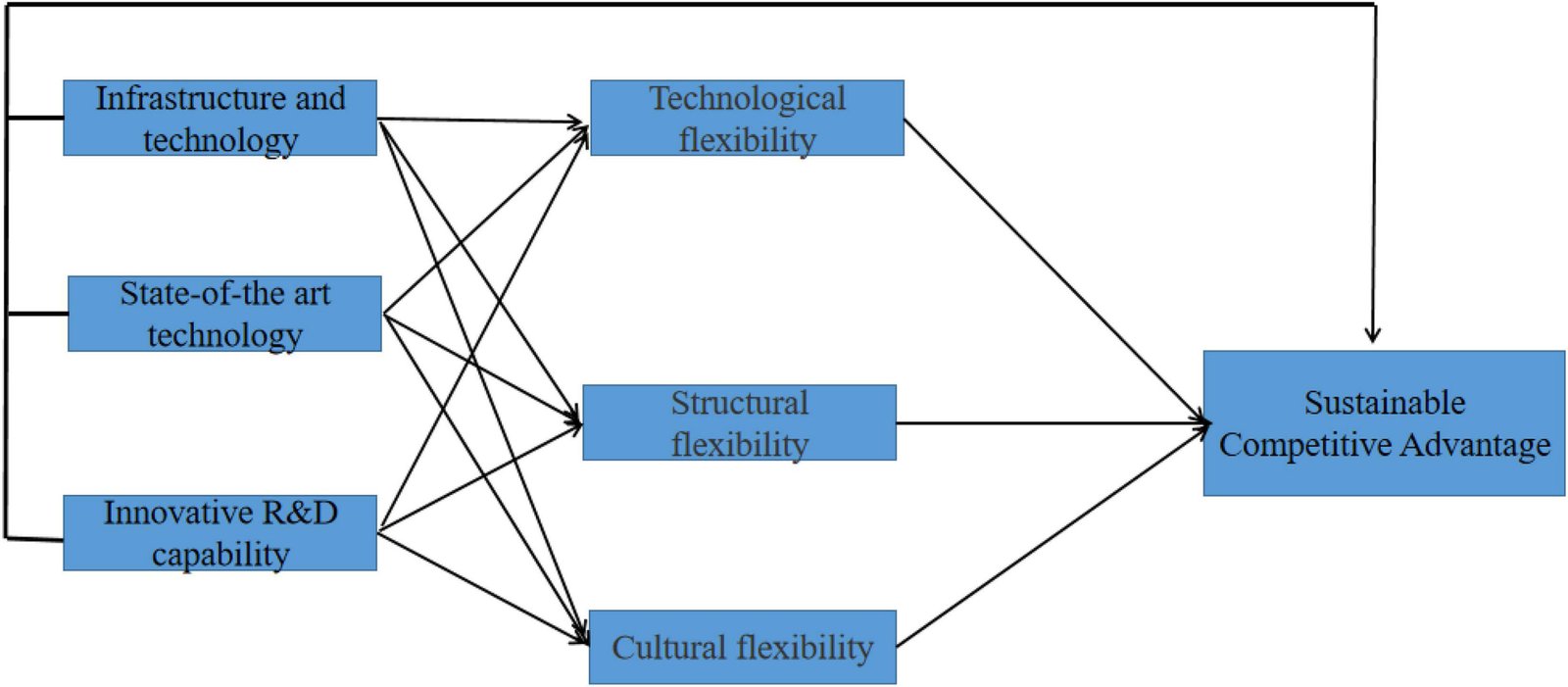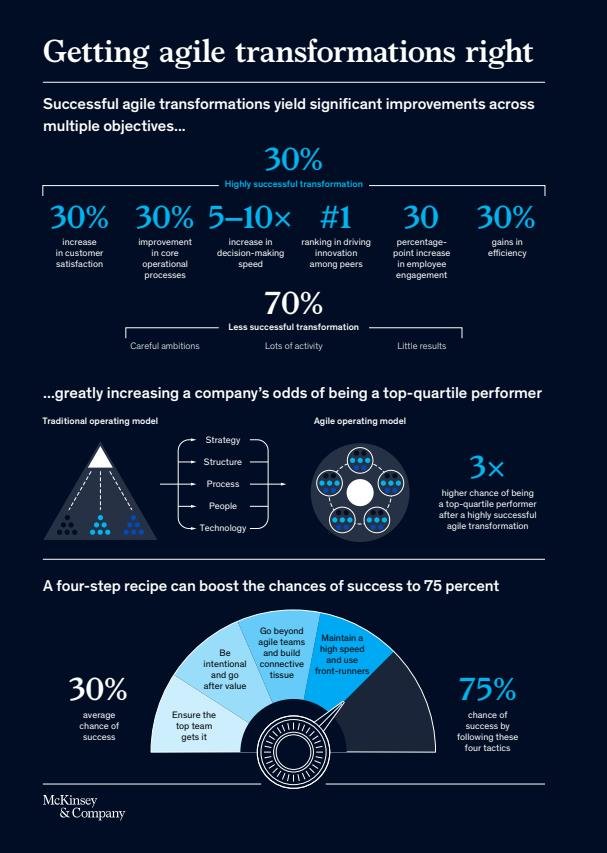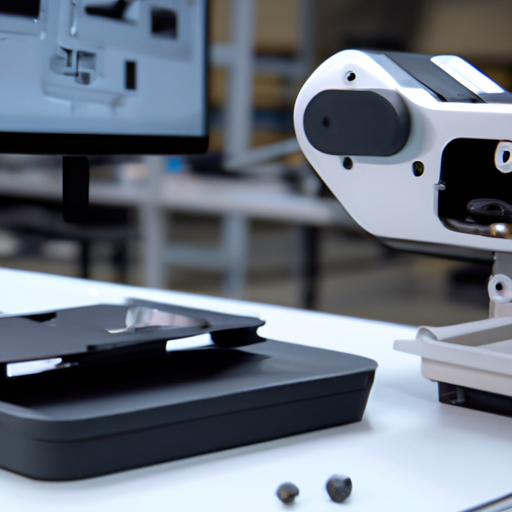
In today’s fast-paced and ever-changing business landscape, the impact of technology on business agility and competitive advantage cannot be overstated. As technology continues to advance at an astonishing rate, businesses must adapt and leverage these innovations in order to stay ahead of the curve. From streamlining operations to enhancing customer experiences, technology is transforming the way businesses operate and compete in the global marketplace.
With the advent of digitalization, businesses now have access to a plethora of tools and resources that can greatly enhance their agility and competitive advantage. The integration of technology allows companies to automate various processes, saving time and resources while improving efficiency. Whether it’s through the use of artificial intelligence (AI), cloud computing, or data analytics, technology empowers businesses to make faster, data-driven decisions that can drive growth and success.
In addition to streamlining operations, technology also plays a crucial role in enhancing customer experiences. With the rise of e-commerce and online platforms, businesses can now reach a wider audience and provide personalized, tailored experiences to their customers. From online shopping to virtual customer support, technology enables businesses to connect with their customers in new and innovative ways. By leveraging technology, businesses can gain a competitive edge by offering convenience, personalization, and seamless interactions.
In conclusion, the impact of technology on business agility and competitive advantage is undeniable. By embracing technological advancements and leveraging them to their advantage, businesses can stay ahead of the competition and thrive in today’s digital age. From streamlining operations to enhancing customer experiences, technology is a powerful tool that can drive growth, innovation, and success. So, don’t get left behind – harness the power of technology to take your business to new heights.

The Impact of Technology on Business Agility and Competitive Advantage
Technology has revolutionized the way businesses operate, impacting their agility and competitive advantage in the market. In today’s fast-paced digital world, companies need to adapt to rapid changes and stay ahead of the competition. This article explores the various ways in which technology influences business agility and how it can be leveraged to gain a competitive edge.
Enhancing Operational Efficiency
Technology plays a crucial role in streamlining business operations and increasing efficiency. From automated processes to data analytics, businesses can leverage technology to optimize their workflows and reduce manual errors. For example, implementing an Enterprise Resource Planning (ERP) system enables companies to integrate various functions such as finance, human resources, and supply chain management into a single platform. This integration improves communication, eliminates duplication of efforts, and enhances overall efficiency.
Furthermore, technology enables businesses to automate repetitive tasks, allowing employees to focus on more strategic and value-added activities. For instance, robotic process automation (RPA) can be used to automate data entry, freeing up employees’ time to engage in more complex tasks that require critical thinking and decision-making. By leveraging technology to enhance operational efficiency, businesses can become more agile and responsive to market demands.

Improved Customer Experience
In today’s customer-centric landscape, delivering exceptional experiences is crucial for business success. Technology has paved the way for businesses to enhance customer interactions and provide personalized solutions. For example, customer relationship management (CRM) systems enable companies to track customer interactions, preferences, and purchase history, allowing them to tailor their offerings to individual needs.
Additionally, advancements in technology have given rise to various communication channels, such as social media, chatbots, and live chat support. These channels enable businesses to engage with customers in real-time, addressing their queries and concerns promptly. By leveraging technology to improve the customer experience, businesses can foster loyalty, gain a competitive advantage, and drive growth.
Agile Decision-Making
In today’s dynamic business environment, timely and data-driven decision-making is crucial for success. Technology equips businesses with the tools and capabilities to access, analyze, and interpret vast amounts of data in real-time. This enables leaders to make informed decisions based on accurate insights and trends.
Moreover, technology facilitates collaboration and communication among teams, regardless of their geographical location. Cloud-based project management tools, video conferencing platforms, and virtual workspaces enable seamless collaboration, ensuring that decision-makers have access to the necessary information and insights when making critical choices. By leveraging technology for agile decision-making, businesses can adapt to changing market conditions swiftly and gain a competitive advantage.
Embracing Innovation
Technology is a catalyst for innovation, enabling businesses to develop new products, services, and business models. With advancements such as artificial intelligence (AI), machine learning, and the Internet of Things (IoT), companies can explore new possibilities and disrupt traditional industries. For example, companies can leverage AI algorithms to analyze customer data and generate personalized product recommendations, enhancing the customer experience and driving sales.
Furthermore, technology enables businesses to stay updated with industry trends and competitors’ activities through market research and competitive intelligence tools. This information allows companies to identify emerging opportunities, adapt their strategies, and stay ahead of the competition. By embracing innovation through technology, businesses can differentiate themselves in the market and maintain a competitive edge.
Optimizing Supply Chain Management
Technology has revolutionized supply chain management, enabling businesses to streamline processes, improve visibility, and reduce costs. Through the use of technologies such as RFID (Radio Frequency Identification), GPS tracking, and blockchain, companies can track and trace their products throughout the entire supply chain, from sourcing to delivery. This visibility enhances transparency, reduces the risk of counterfeit products, and ensures timely delivery.
Moreover, technology enables businesses to optimize inventory management through real-time data analytics. By leveraging predictive analytics, companies can forecast demand, optimize stock levels, and reduce inventory holding costs. This optimization not only improves operational efficiency but also enhances customer satisfaction by ensuring product availability.
In conclusion, technology has a profound impact on business agility and competitive advantage. By enhancing operational efficiency, improving the customer experience, enabling agile decision-making, embracing innovation, and optimizing supply chain management, businesses can adapt to changing market dynamics and gain a competitive edge. As technology continues to evolve, it is essential for businesses to stay abreast of the latest trends and leverage them to drive growth and success.

The Impact of Technology on Business Agility and Competitive Advantage
- Technology enables businesses to respond quickly to changing market demands.
- Adopting the right technology can give businesses a competitive edge.
- Technology allows businesses to streamline operations and increase efficiency.
- Businesses can leverage technology to improve customer experience and satisfaction.
- Embracing technology helps businesses stay ahead of their competitors.
Frequently Asked Questions
How does technology impact business agility?
Technology has a profound impact on business agility. By leveraging technological advancements, businesses can streamline their processes, automate tasks, and improve communication and collaboration. This allows businesses to respond quickly to market changes and customer demands, adapting their strategies and operations in a more agile and efficient manner.
Furthermore, technology enables businesses to gather and analyze vast amounts of data, providing valuable insights for decision-making. With real-time data, businesses can make informed and data-driven decisions, enhancing their agility and ability to seize opportunities and mitigate risks.
What role does technology play in gaining a competitive advantage?
Technology plays a crucial role in gaining a competitive advantage in today’s digital landscape. It allows businesses to differentiate themselves by offering innovative products or services, enhancing customer experiences, and optimizing internal processes.
Through the use of technology, businesses can automate repetitive tasks, reduce costs, and improve efficiency. This enables them to deliver their products or services faster and at a lower cost compared to their competitors, giving them a competitive edge.
How does technology enhance business agility in a rapidly changing market?
In a rapidly changing market, technology is a key enabler of business agility. It allows businesses to adapt to market trends and customer preferences quickly. For example, cloud computing enables businesses to scale their operations up or down rapidly, depending on demand.
Additionally, technology facilitates remote work and virtual collaboration, providing flexibility and agility in managing teams and projects. With the right technological tools and infrastructure in place, businesses can respond swiftly to market changes, seize opportunities, and stay ahead of the competition.
What are some examples of technology that improve business agility?
There are several examples of technology that improve business agility. One such example is cloud computing, which allows businesses to access computing resources on-demand and scale their operations quickly. This flexibility enables them to adapt to changing business needs and market conditions.
Another example is data analytics. By leveraging advanced analytics tools and techniques, businesses can gain valuable insights from large and complex datasets. This empowers them to make data-driven decisions promptly, enhancing their agility in responding to market dynamics.
How can businesses leverage technology to gain a competitive advantage?
Businesses can leverage technology to gain a competitive advantage in various ways. Firstly, by investing in research and development, businesses can develop innovative technologies or solutions that set them apart from competitors. These innovations can range from new products or services to process improvements.
Furthermore, businesses can use technology to enhance their customer experiences. This can be achieved through personalized marketing campaigns, user-friendly interfaces, or convenient online shopping platforms. By providing a superior customer experience, businesses can attract and retain customers, giving them a competitive edge.

Final Summary: The Impact of Technology on Business Agility and Competitive Advantage
In today’s fast-paced and highly competitive business landscape, it has become evident that technology plays a pivotal role in driving business agility and securing a competitive advantage. The integration of advanced technological solutions empowers organizations to adapt quickly to changing market conditions, respond to customer demands with agility, and outperform their competitors. From streamlining operations to enhancing customer experiences, technology has revolutionized the way businesses operate and thrive in the digital era.
One of the key ways technology impacts business agility is through process automation. By leveraging innovative tools and software, businesses can automate repetitive tasks, optimize workflows, and free up valuable time for their employees to focus on more strategic initiatives. This not only increases operational efficiency but also enables businesses to respond swiftly to market shifts and customer needs. Furthermore, technology enables real-time data analytics, providing businesses with valuable insights to make informed decisions and anticipate market trends. With access to accurate and up-to-date information, businesses can adapt their strategies and offerings promptly, ensuring they stay ahead of the competition.
Moreover, technology has transformed the way businesses engage with their customers, delivering personalized experiences and fostering stronger relationships. Through digital platforms and social media, businesses can reach a wider audience, understand their preferences, and tailor their offerings accordingly. This level of customization not only enhances customer satisfaction but also creates a competitive advantage by differentiating businesses from their counterparts. Additionally, technology enables businesses to leverage data-driven marketing strategies, optimizing campaigns for maximum impact and ROI.
In conclusion, the impact of technology on business agility and competitive advantage cannot be ignored. By embracing technological advancements and harnessing their power, businesses can enhance their agility, adaptability, and customer-centricity. From process automation to personalized experiences, technology is a driving force behind the success of modern businesses. As the business landscape continues to evolve, organizations that prioritize technology as a strategic enabler will undoubtedly thrive and remain at the forefront of their industries. So, embrace the power of technology and unlock your business’s full potential in the digital age.


